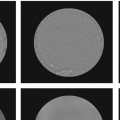Truncation, also known as derivation or wildcard search, is a technique used to broaden the scope of a search. It involves entering the root of a word and adding a truncation symbol at the end. This will return results that include any endings of that root word. In mathematics and computer science, truncation limits the number of digits to the right of the decimal point.
Truncation is a useful tool when searching databases, as it allows for different forms of a word to be searched simultaneously. This increases the number of search results found. In computing, truncation can occur when a decimal number is typecast as an integer; it is truncated to zero decimal digits because integers cannot store non-integer real numbers. Different databases use different truncation symbols, so it is important to check the information in the database “Help” or “Search Tips” for details on which symbol to use.
In mathematics and computer science, truncation is used to limit the number of digits to the right of the decimal point. For example, in glycerin fractionation for PSA production, the estimated truncation error is much larger than Cap-xylene production. The algorithm for truncating positive numbers differs slightly depending on whether a positive value (greater than or equal to zero) or a negative value (less than zero) is truncated. The inclusion of tolerance as a constraint on the size of the truncation error is ineffective, since each ODE would require a different value, and it is difficult to define the minimum step size uniquely due to the problem of different units.
Truncation errors in the process LCA result from cutting off missing flows during boundary selection. The main term of the truncation error represents a fourth-order dissipative process that complements physical dissipation of the diffusion equation. The global truncation error is an agglomeration of local truncation errors in all iterations, assuming perfect knowledge of the true solution in the initial time step. To truncate a search term, do a keyword search in a database but remove the end of the word and add an asterisk (*) at the end. This will allow for multiple variations of a word to be searched simultaneously and will increase the number of search results found.
Java has been good enough to include a method in its standard library that will do this for you.











